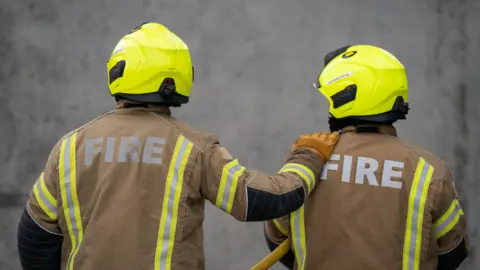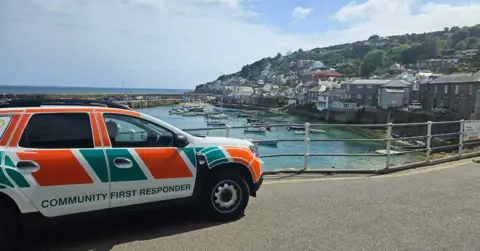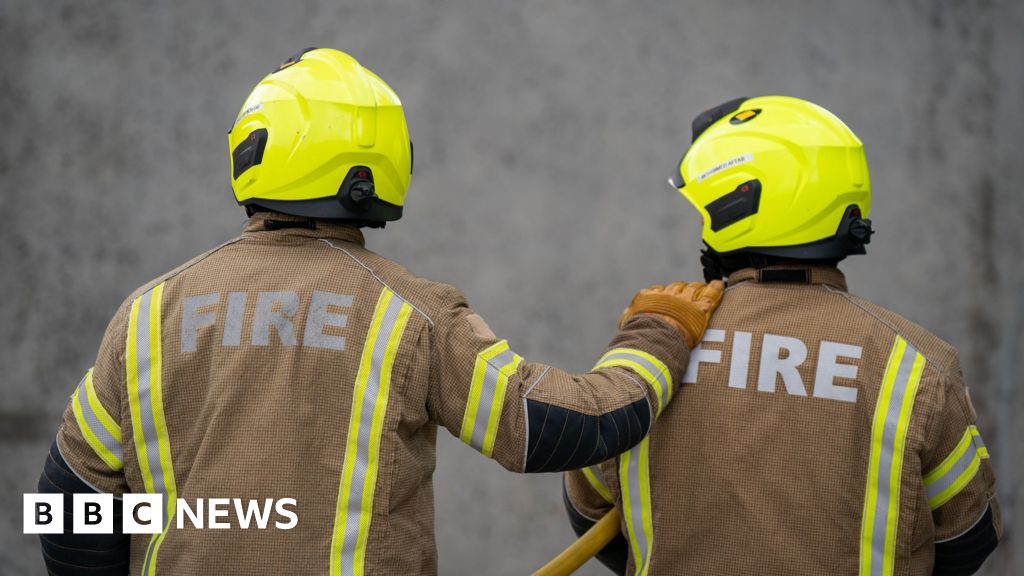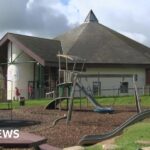BBC South West home affairs correspondent
 PA Media
PA MediaA union has warned some rural fire stations are at risk of closure due to a decision to phase out a role which sees firefighters be first responders in some medical emergencies in the south-west of England.
Some firefighters are trained to co-respond to fire and medical calls but the South Western Ambulance Service Trust said this was no longer financially viable.
The trust said it saved about £60 per call by using its voluntary community first responders, who are paid only expenses.
The Fire and Rescue Services Association said the viability of some fire stations depended on the payments received for delivering medical care.
‘Absolutely aghast’
Tristan Ashby, chief executive of the union, said: “Co-responder calls can very much outweigh the number of standard fire calls that a station receives, so in terms of the recruitment and retention for on-call firefighters, it is vitally important that we continue fire co-responders within the South West.
“We were absolutely aghast when we heard… that [the ambulance trust] wanted to make the move from the fire co-responders to volunteers.”
The union said it had been told the total annual savings projected by the ambulance trust was about £280,000
It said the sum was “an extremely small amount of money within the grand scheme of fire service budgets”.
 South Western Ambulance Service Trust
South Western Ambulance Service TrustThe trust did not comment on the total projected savings but said financial considerations were just one part of its decision and patients would benefit from a higher level of care from community first responders.
Mr Ashby said the union was calling on fire services or the government to consider paying the trust to keep using fire co-responders.
Devon and Somerset Fire and Rescue Service said it was not aware of a payment to the ambulance trust being part of discussions so far.
It said fire co-responders had “carried out some amazing acts” in the 27 years they had operated in Devon and Somerset.
“We are saddened to see that South Western Ambulance Service will be phasing co-responding out,” it said.
‘Incredibly sad’
Kathryn Billing, Cornwall’s chief fire officer, said co-responders had worked with “exceptional dedication” and “saved countless lives”.
“I am disappointed by the decision to cease our co-responding agreement,” she said.
“Our firefighters have provided a consistent, professional community response for nearly three decades.
“This is an incredibly sad end to a partnership which I know has made a significant difference to so many in our most rurally isolated communities.
“I am incredibly proud of one and all who have been involved with our co-responders partnership over the past 29 years, the passion, pride and professionalism and the lives saved will not be forgotten by us nor the communities they serve.”
Training offered
The ambulance trust said community first responders “receive an enhanced level of clinical training”
It said: “As part of the transition, we have invited fire co-responders to train to become community first responders, so they can acquire new skills and continue to help support their local community in a medical emergency.”
The BBC has asked the government for comment.
Read full article at source
Stay informed about this story by subscribing to our regular Newsletter




